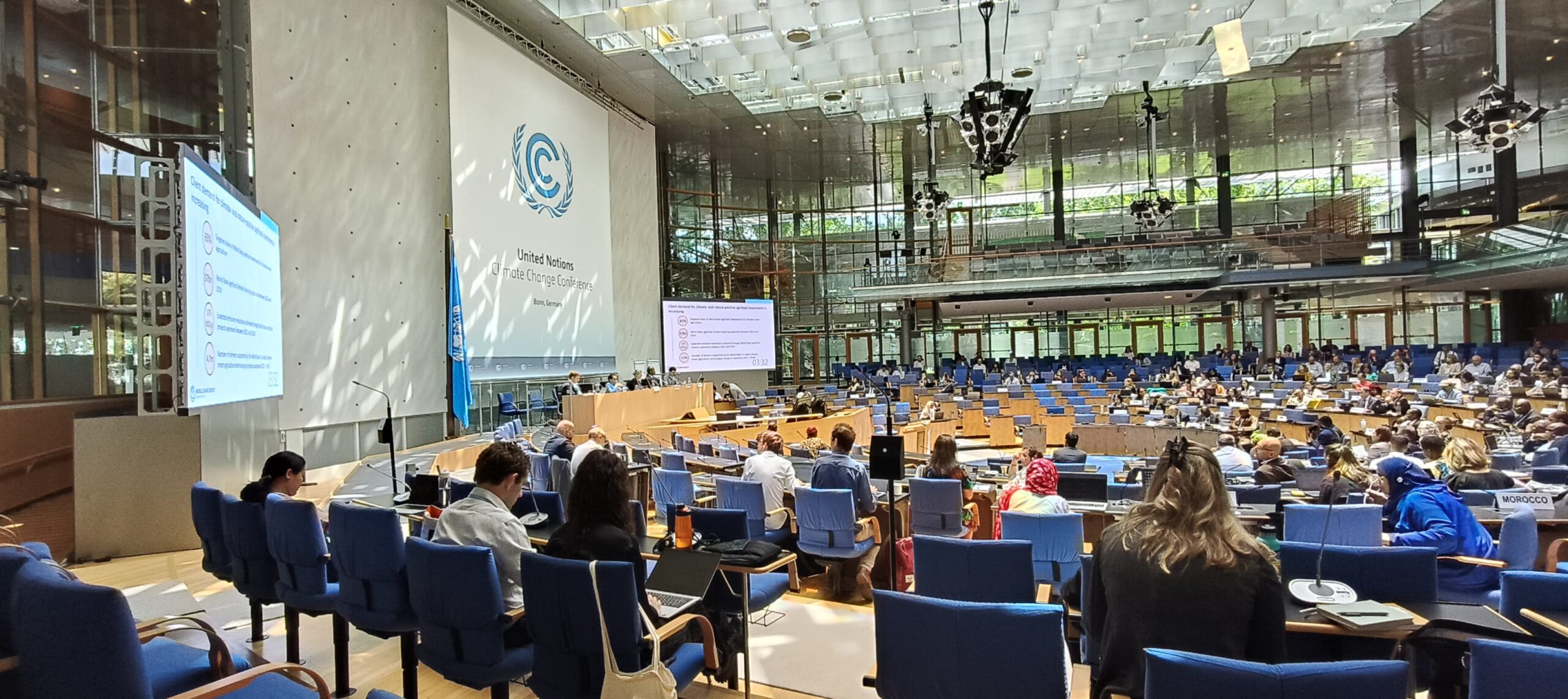ECOSOC at 80: Renewing Multilateralism in an Age of Global Uncertainty
On 23 January, the United Nations Economic and Social Council (ECOSOC) convened a commemorative session…

From June 16 to 26, 2025, delegates from around the world gathered in Bonn, Germany, for the 62nd session of the UNFCCC’s Subsidiary Bodies, commonly referred to as SB62. These mid-year climate negotiations serve as a critical milestone in the lead-up to the annual COP, with SB62 seen as an important stepping stone toward COP30 in Belém, Brazil.
Although the session began with delays due to disagreements over the adoption of the agenda, negotiations ultimately moved forward on several key fronts, including the Global Goal on Adaptation (GGA), the Global Stocktake, and the Sharm el-Sheikh Joint Work on Agriculture and Food Security (SJWA), among others.
One of the central themes of SB62 was the continued effort to operationalize the Global Goal on Adaptation, a core element of the Paris Agreement still under development. Building on the outcomes of COP28, negotiators worked to identify targets, thematic areas, and indicators to assess global progress on adaptation. A new draft set of indicators was tabled at SB62, prompting extensive discussion. Many Parties underscored the need to maintain national flexibility while ensuring global comparability, particularly in light of differing capacities and contexts. Diverging views also emerged around whether and how to include indicators related to means of implementation, such as finance, capacity building, and technology transfer.
Agriculture remained on the agenda at this session, particularly through the SJWA, which was established at COP27 to move beyond discussion and scale up implementation across food systems. At SB62, Parties welcomed the first annual synthesis report, which compiles activities undertaken by UN entities, financial institutions, and international organizations since 2013. This foundational document sets the stage for more coordinated efforts going forward. A second synthesis report is expected by SB64 in June 2026 and will incorporate more detailed inputs from parties and stakeholders, including updates from COP Presidencies and relevant initiatives.
A highlight of the session was the SJWA workshop held on June 17, which brought together a broad range of participants, from government representatives to researchers and civil society actors, to explore systemic and holistic approaches to agricultural adaptation. The event reaffirmed that climate-resilient agriculture must be evidence-driven, inclusive, and grounded in local realities. In support of this vision, a new online portal was launched to facilitate the exchange of information. Parties and observers can use this space to share policies, initiatives, and projects, and to seek out partnerships, funding opportunities, and avenues for collaboration.
However, discussions on agriculture must not be limited to the SJWA alone. As a sector deeply intertwined with adaptation, mitigation, food security, biodiversity, and livelihoods, agriculture deserves a more prominent and cross-cutting role within the UNFCCC agenda. It should be systematically integrated into discussions across thematic areas, including finance, technology, just transition, and loss and damage, to reflect its centrality in climate action and ensure coherence in implementation.
As SB62 concludes, it’s clear that the road to COP30 will demand sustained political will, inclusive processes, and technical alignment to translate frameworks into meaningful action. While some negotiations revealed persistent divides, the session also reflected a growing consensus: climate solutions must be integrated, just, and rooted in real-world impact. For agriculture, this means keeping food systems at the center of the adaptation agenda, ensuring access to finance, and empowering farmers – particularly in the Global South – not just as beneficiaries, but as key partners in climate resilience